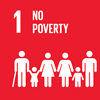
Indonesia’s Vice Minister of Finance, Prof. Dr. Anggito Abimanyu, emphasized the importance of sustainability reporting in supporting the transformation towards a sustainable economy. He conveyed this message at the international conference “4th Biennial Emerging Scholars Colloquium and Conference on Accounting and Accountability in Emerging Economies (AAEE),” on Thursday, June 26, 2025, at Sanur Prama Sanur Beach Hotel, Bali.
In his presentation, Anggito emphasized that the concept of sustainability is no longer limited to environmental issues, but also encompasses social justice and government accountability. Therefore, the government holds a vital responsibility to provide strong regulations and clear reporting mechanisms to ensure businesses have direction and certainty in implementing responsible practices.
Moreover, the increasingly complex global dynamics have weakened the role of international organizations, while rising protectionist policies continue to spark tensions between nations. The impact of these global dynamics on economic activity is evident in the projected decline of global economic growth to 2.8 percent in 2025, down from 3.2 percent in 2024.
“This situation underscores the urgency of developing a growth strategy that is not only economically driven but also sustainable and resilient to external shocks,” he said.
Anggito explained, sustainability reporting plays an important role in fostering a more transparent and inclusive economy. Through such reporting, companies can demonstrate their commitment to green practices and social responsibility while also building public trust and credibility. Transparent reporting is also attractive to investors, particularly those focused on businesses that adhere to Environmental, Social, and Governance (ESG) principles. This is supported by the projection that global ESG assets will reach $53 trillion by 2025.
In Indonesia, several regulations have been issued to encourage sustainability reporting practices, including Financial Services Authority Regulation (POJK) No. 51/POJK.03/2017 on the Implementation of Sustainable Finance for Financial Service Institutions, Issuers, and Public Companies; Financial Services Authority Circular Letter No. 16/SEOJK.04/2021 on the Form and Content of Annual Reports of Issuers or Public Companies; and Law No. 4/2023 on the Development and Strengthening of the Financial Sector (UU PPSK). However, the implementation on the ground still faces various challenges. The absence of a uniform reporting standard has led companies to adopt different frameworks, such as GRI (Global Reporting Initiative), SDGs (Sustainable Development Goals 2030), SASB (Sustainability Accounting Standards Board), or even a mix of several standards.
In addition, there is currently no mandatory requirement for assurance of sustainability reports. Yet assurance can enhance the reliability, accountability, and credibility of these reports. At present, the most widely adopted assurance standard is AA1000AS (AccountAbility 1000 Assurance Standard), which assesses the transparency and sustainability performance of organizations comprehensively.
Anggito further highlighted the importance of higher education institutions in developing a mature sustainability reporting ecosystem. One example is The Institute of Certified Sustainability Practitioners (ICSP), which offers professional certification programs such as CSRS (Certified Sustainability Reporting Specialist) and CSRA (Certified Sustainability Reporting Assurer). Through education and certification, it is expected that a pool of competent and accountable professionals will emerge to support the quality and integrity of sustainability reporting in Indonesia.
Concluding his session, Anggito emphasized that synergy among government bodies, business actors, professionals, and higher education institutions is essential for building a robust sustainability reporting ecosystem. Such an ecosystem would serve as the foundation for Indonesia’s economic growth that is not only sustainable but also resilient to global political and economic fluctuations. This vision aligns with the Sustainable Development Goals (SDGs), which aim to create a prosperous, inclusive, and environmentally conscious world.
Reportage: Najwah Ariella Puteri
Editor: Kurnia Ekaptiningrum
Sustainable Development Goals













